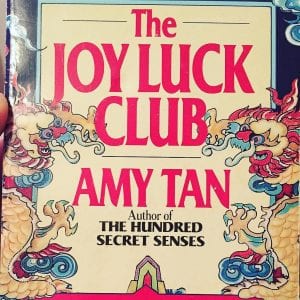
“Change your perspective” is a cliché phrase, but like all common sayings, it contains grains of truth. As the masterpiece work The Joy Luck Club (by novelist Amy Tan) masterfully demonstrates, perspective matters. Examining a situation through multiple perspectives allows for empathy for others and encourages the human bonds that bring us all together.
Confusing at times, The Joy Luck Club switches between the point of view of eight people: the four members of the club, and their respective daughters. It is a book that explains and transverses time and space. The anarchy of China in the early 20th century is explored in as much depth as the Chinese experience in America in the late 20th century. The differing perspectives allows the reader to experience the contrasts between Chinese and American culture, from the food to the vastly different definitions of politeness and mannerisms. For example, in China, refusing a gift and self-deprecation as a means of subtle boasting is considered polite. In the United States, however, such behavior is not only not condoned, but also considered unbearably rude. In addition, romantically linking several Chinese characters to American husbands further juxtaposes the differences between the cultures, yet demonstrates that bonds of love are stronger than any cultural barriers imposed by society.
The maternal dynamic, which is a main and recurring theme within the story, is also furthered by the rotating point of views presented. The childhood triumphs and tribulations of the members of the joy luck club are explored, as well as the the childhoods of their daughters. From this, the reader can spot parallels between the life stories of different generations. Each daughter has led a relatively comfortable life compared to her mother because of the sacrifices of her mother made, yet each has also had to face her own set of difficulties. The members of the joy luck club also had distant relationships with their own mothers, and this disconnect is present between their relationships with their own daughters as well, showing that some interpersonal problems persevere through generations.
Interestingly enough, when reading chapters from the point of view from the daughters, I agreed with them that their mothers were too superstitious and old-fashioned. And when I read from the point of view of the mothers, I agreed with them that their daughters were too inexperienced. Each side saw problems with the other, and didn’t recognize the problems within themselves. However, neither side was right, and neither was wrong. Most books try to paint the world as black and white; good vs. bad; purity vs. evil. Yet by presenting both perspectives, Amy Tan avoids this rabbit hole and magnifies a fundamental truth: the world is gray. There is no right or wrong; it all depends on how you look at it.

